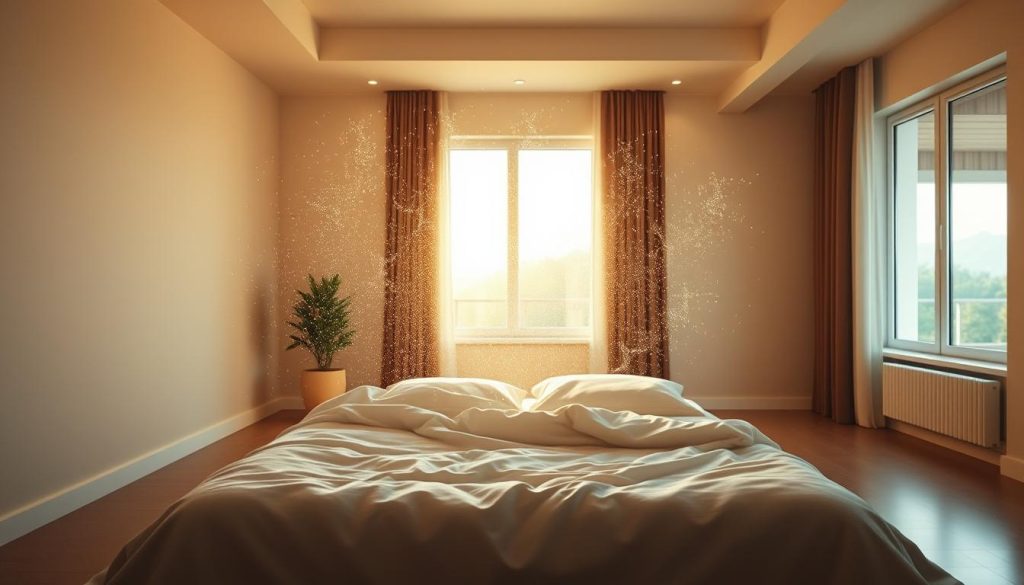In today’s fast-paced world, many people are seeking natural ways to boost their mood and improve their overall well-being. One promising approach that has gained attention in recent years is the use of negative ions for mental health. Negative ions are electrically charged particles found in nature that have been shown to positively impact mood and reduce symptoms of anxiety and depression.
This article explores the fascinating connection between negative ions and mental health, shedding light on how exposure to these invisible particles can help promote a sense of calm, improve sleep quality, and enhance cognitive function. We’ll delve into the science behind negative ions, discover natural sources of these mood-boosting particles, and explore practical ways to incorporate them into your daily life for improved mental well-being.
Whether you’re looking to reduce stress, alleviate symptoms of depression, or simply enhance your overall mood, understanding the role of negative ions in mental health can provide valuable insights and strategies for achieving optimal well-being. Join us as we uncover the power of this natural therapy and learn how to harness its benefits for a happier, healthier state of mind.
The Science Behind Negative Ions and Mental Well-being
In recent years, the impact of negative ions on mental health has gained significant attention from researchers and mental health professionals. To understand how negative ions can improve our mental well-being, it’s essential to explore the science behind their effects on the brain and body.
What Are Negative Ions?
Negative ions are electrically charged particles found in nature, often generated by moving water, such as waterfalls, ocean waves, and rainfall. These ions are oxygen atoms with an extra electron, giving them a negative charge. The negative ions definition is simply air molecules that have gained an additional electron, resulting in a net negative charge.

How Negative Ions Affect the Brain
When negative ions are inhaled, they can influence the brain function and the production of neurotransmitters, particularly serotonin. Serotonin is a crucial neurotransmitter that plays a vital role in regulating mood, emotions, and overall mental well-being. Studies have shown that exposure to negative ions can increase serotonin levels in the brain, leading to improved mood and reduced symptoms of depression and anxiety.
Negative ions are believed to enhance the brain’s oxygen uptake, which can lead to increased mental clarity, concentration, and overall cognitive function. Additionally, these charged particles may help to balance the autonomic nervous system, reducing stress levels and promoting a sense of relaxation and calmness.
Natural Sources of Negative Ions
Nature offers an abundance of negative ions that can help boost your mental well-being. Spending time in environments rich in these beneficial particles can be a form of nature therapy, helping to reduce stress, improve mood, and promote overall mental health. Let’s explore some of the best natural sources of negative ions.
Waterfalls and Moving Water
Waterfalls, rivers, and streams are among the most potent natural sources of negative ions. The movement and crashing of water molecules against surfaces generates high concentrations of these mood-enhancing particles. Visiting waterfalls or spending time near moving water can provide a refreshing and invigorating experience for both body and mind.

Forests and Green Spaces
Lush forests and green spaces are another excellent source of negative ions. Trees and plants release these beneficial particles into the air, creating a fresh and rejuvenating atmosphere. Taking a walk or hike through a forest can help you connect with nature and reap the mental health benefits of negative ions.
Here are some of the best forest environments for exposure to negative ions:
| Forest Type | Negative Ion Concentration | Mental Health Benefits |
|---|---|---|
| Pine Forests | High | Stress reduction, improved mood |
| Rainforests | Very High | Enhanced cognitive function, reduced anxiety |
| Deciduous Forests | Moderate | Improved emotional well-being, increased relaxation |
Beaches and Coastal Areas
Beaches and coastal areas are not only visually stunning but also rich in negative ions. The collision of waves against the shore and the presence of sea spray contribute to the high concentrations of these beneficial particles in the air. Spending time at the beach can help alleviate symptoms of depression, reduce stress, and promote a sense of calm and well-being.
Incorporating visits to these natural sources of negative ions into your routine can be a powerful way to support your mental health. Whether it’s a weekend getaway to a nearby waterfall, a hike through a lush forest, or a day spent at the beach, immersing yourself in environments rich in negative ions can help you feel refreshed, rejuvenated, and mentally balanced.
The Benefits of Negative Ions for Mental Health
Exposure to negative ions has been shown to offer a range of mental health benefits, helping to promote a sense of well-being and emotional balance. By incorporating negative ions into your daily life, you may experience reduced stress, anxiety relief, and improved mood.
Reducing Stress and Anxiety
Negative ions have a calming effect on the body and mind, helping to reduce stress and promote relaxation. When inhaled, these ions can help regulate stress hormones like cortisol, leading to a decrease in anxiety symptoms. Studies have shown that exposure to negative ions can:
- Lower heart rate and blood pressure
- Reduce muscle tension and promote relaxation
- Enhance alpha brain wave activity, associated with a calm and relaxed state

Alleviating Symptoms of Depression
Negative ions have also demonstrated potential in depression treatment. Research suggests that exposure to negative ions can help alleviate symptoms of depression by influencing serotonin levels in the brain. Serotonin, often referred to as the “happiness hormone,” plays a crucial role in regulating mood and emotional well-being.
A study conducted by Columbia University found that negative ion therapy could be as effective as antidepressant medication in treating seasonal affective disorder (SAD), a type of depression linked to changes in seasons.
| Study | Participants | Duration | Results |
|---|---|---|---|
| Columbia University | 124 adults with SAD | 4 weeks | 47% reduction in depression scores |
| University of Turku, Finland | 89 adults with winter depression | 3 weeks | 61% improvement in symptoms |
Improving Mood and Emotional Well-being
In addition to addressing specific mental health concerns, negative ions contribute to an overall sense of emotional well-being and mood enhancement. Exposure to negative ions has been linked to:
- Increased energy levels and mental alertness
- Improved concentration and cognitive function
- Enhanced positive emotions and overall mood
By spending time in nature, using negative ion generators, or creating an indoor environment rich in negative ions, you can harness the power of these tiny particles to support your mental health and emotional well-being.
Negative Ions and Sleep Quality
Negative ions have been shown to positively impact sleep quality by promoting a more restful and restorative sleep experience. These naturally occurring particles can help regulate the body’s circadian rhythm, leading to improved sleep patterns and a reduction in symptoms of insomnia.
Studies have found that exposure to negative ions before bedtime can help individuals fall asleep faster and experience deeper, more rejuvenating sleep. This is due to the ability of negative ions to reduce stress levels and promote relaxation, creating an optimal environment for a good night’s rest.

One of the ways negative ions enhance sleep quality is by increasing the production of serotonin, a neurotransmitter that plays a crucial role in regulating mood and sleep-wake cycles. Higher levels of serotonin have been associated with improved sleep onset, duration, and overall sleep quality.
Additionally, negative ions can help purify the air by removing airborne pollutants, allergens, and other irritants that may disrupt sleep. Cleaner air can lead to fewer respiratory issues and a more comfortable sleeping environment, further contributing to restful sleep.
Incorporating negative ion generators or spending time in nature before bedtime can be an effective way to harness the sleep-promoting benefits of these particles. By making negative ions a part of your sleep hygiene routine, you may experience a significant improvement in your sleep quality and overall well-being.
Incorporating Negative Ions into Your Daily Life
Incorporating negative ions into your daily habits can have a profound impact on your mental well-being. By making a few simple changes to your routine, you can harness the power of nature therapy and improve your indoor air quality, ultimately promoting a healthier and happier lifestyle.
Spending Time in Nature
One of the easiest ways to boost your exposure to negative ions is by spending more time outdoors in natural settings. Make it a habit to take regular walks in parks, forests, or near bodies of water, such as rivers, lakes, or beaches. These environments are rich in negative ions, and the fresh air and natural surroundings can help reduce stress and improve your overall mood.
Using Negative Ion Generators
If you spend a significant amount of time indoors, consider investing in a negative ion generator. These devices emit negative ions into the air, mimicking the beneficial effects of natural environments. Place these generators in your home or office, particularly in areas where you spend the most time, such as your bedroom or workspace. Many people report improved air quality and a greater sense of well-being when using negative ion generators.
Creating an Indoor Environment Rich in Negative Ions
In addition to using negative ion generators, you can create an indoor environment that naturally promotes the presence of negative ions. Here are a few tips to help you achieve this:
- Incorporate indoor plants: Certain plants, such as peace lilies, snake plants, and Boston ferns, can help purify the air and increase negative ion levels.
- Use a water feature: Indoor fountains or water features can generate negative ions through the movement of water, creating a calming and refreshing atmosphere.
- Open windows regularly: Allowing fresh air to circulate through your living spaces can help maintain healthy indoor air quality and introduce negative ions from the outdoors.
By incorporating these strategies into your daily habits, you can create an environment that supports your mental health and well-being through the power of negative ions.
Negative Ions and Mental Health: What the Research Says
As interest in natural approaches to mental health grows, scientific research has begun to explore the potential benefits of negative ions. Clinical studies have investigated how exposure to negative ions may help alleviate symptoms of depression and improve cognitive function.
Clinical Studies on Negative Ions and Depression
Several clinical studies have examined the effects of negative ion therapy on individuals experiencing depression. One notable study published in the Journal of Alternative and Complementary Medicine found that patients with seasonal affective disorder (SAD) who were exposed to high concentrations of negative ions experienced significant improvements in their depression symptoms compared to a control group.
Another study conducted at Columbia University revealed that negative ion generators helped reduce symptoms of chronic depression in a group of participants. The researchers suggested that negative ions may positively influence serotonin levels in the brain, a neurotransmitter closely linked to mood regulation.
Research on Negative Ions and Cognitive Function
In addition to their potential benefits for depression treatment, negative ions have also been studied for their effects on cognitive function. A study published in the International Journal of Neuroscience found that exposure to negative ions improved memory and attention in a group of healthy adults.
The table below summarizes some key findings from scientific research on negative ions and mental health:
| Study Focus | Participants | Results |
|---|---|---|
| Negative ions and seasonal affective disorder | Adults with SAD | Significant improvement in depression symptoms |
| Negative ions and chronic depression | Adults with chronic depression | Reduced symptoms of depression |
| Negative ions and cognitive function | Healthy adults | Improved memory and attention |
While these studies provide promising insights into the potential mental health benefits of negative ions, more research is needed to fully understand the mechanisms at play and establish clinical guidelines for negative ion therapy. As scientific interest in this area grows, we can expect to see more rigorous studies exploring the role of negative ions in promoting mental well-being and cognitive function.
Combining Negative Ion Therapy with Other Mental Health Practices
Negative ion therapy can be a powerful tool for improving mental health, but it doesn’t have to be used in isolation. Incorporating other mental health practices alongside negative ion exposure can create a holistic approach to well-being. Two effective practices that pair well with negative ion therapy are meditation and mindfulness, as well as exercise and physical activity.
Meditation and Mindfulness
Meditation and mindfulness are ancient practices that have gained popularity in recent years for their ability to reduce stress, improve focus, and promote emotional balance. When combined with negative ion therapy, these practices can enhance the overall benefits for mental health. Consider the following ways to integrate meditation and mindfulness into your negative ion therapy routine:
- Practice deep breathing exercises while spending time near a negative ion source, such as a waterfall or indoor fountain.
- Engage in guided meditations or mindfulness exercises while using a negative ion generator.
- Take mindful walks in nature, paying attention to the sights, sounds, and sensations around you while benefiting from the negative ions in the environment.
Exercise and Physical Activity
Exercise and physical activity are well-known for their positive effects on mental health, including reducing symptoms of depression and anxiety, improving mood, and boosting self-esteem. Combining exercise with negative ion exposure can amplify these benefits. Here are some ideas for incorporating physical activity into your negative ion therapy routine:
- Go for a run or hike in a park or forest, where negative ion concentrations are typically higher.
- Practice yoga or stretching exercises near a negative ion generator or in a room with plenty of natural light and air circulation.
- Engage in water-based activities, such as swimming or surfing, which can provide both physical exercise and exposure to negative ions.
By combining negative ion therapy with meditation, mindfulness, exercise, and physical activity, you can create a comprehensive, holistic approach to improving your mental health and overall well-being.
Frequently Asked Questions About Negative Ions and Mental Health
Many people have common questions about how negative ions can impact mental health and well-being. These FAQs aim to provide clear answers about the potential benefits of ionic therapy and exposure to negative ions. One frequent question is how negative ions specifically affect the brain and mood. Research suggests that negative ions may help regulate serotonin levels, a neurotransmitter linked to feelings of happiness and calmness.
Another common query relates to the best ways to get exposure to negative ions in daily life. Spending time in nature near moving water, forests, and beaches are great natural sources of negative ions that can boost mental health. Using a negative ion generator indoors is another option to create an environment rich in these beneficial particles.
People also often wonder about the scientific evidence behind negative ions and mental health. Several clinical studies have found that exposure to high concentrations of negative ions can help alleviate symptoms of depression and seasonal affective disorder. Other research points to benefits for overall cognitive function and performance. While more studies are needed, the existing body of evidence suggests negative ion therapy may be a helpful complementary approach to support mental well-being.

